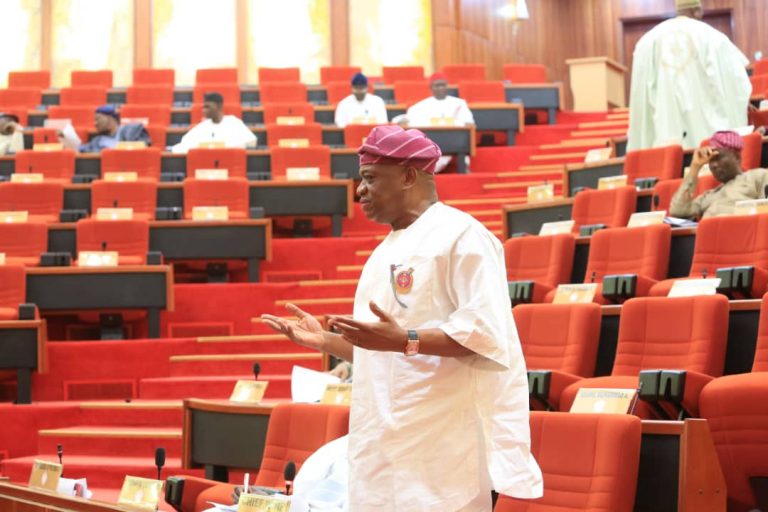Chief Whip of the Senate, Senator Orji Uzor Kalu has called on the Federal Government to focus on the establishment of processing mini – industries in every state of the Federation to boost the Agricultural Sector of the economy.
The former Governor expressed that the mini – industries would ensure that cash crops like cashew, groundnut etc were processed into products thus creating a value chain for export and employment in the Agricultural sector.
Senator Kalu (Abia-North) who is also the Vice-chairman of the Senate committee Banking, Insurance, and other financial institutions, commended the Federal Government’s efforts in building Silos (storage facilities) across the country, he, however, pointed that most of them were not being put into use.
These formed part of Senator Kalu’s contributions to a motion during the Senate plenary on Thursday sequel to the consideration of a motion on “The need for continuous implementation of policy reforms for the diversification of the Nigerian economy through the Agricultural and Solid Minerals Sectors.”
The motion was sponsored by Senator Ibikunle Amosun (APC, Ogun Central) and co-sponsored by 59 other senators.
Read Also: Jonathan Decries Late Arrival Of Election Materials
According to Amosun, available statistics show that the contribution of crude petroleum and natural gas to the nation’s Gross Domestic Product (GDP) declined from 14.95 percent in 2011 to 9.61 percent in 2015 while the agricultural sector contributed 23.35 and 23.11 percent, respectively, to the GDP during the periods.
Kalu in his contribution to the motion said;
“A lot of cash crops were produced but were neither sold nor consumed because the prices were going down in supporting this motion I would like to encourage the Federal government of Nigeria to also extend a mini – industry scheme for processing food either maize, groundnut, chew nuts and other cash crops that we produce in this country.
“During the early days of China they started by producing food for consumption only ans the people can be fed with and after feeding the people the next step was processing. As Governor in 2006 we produced a lot of cassava but the produce could not be exported. So I encourage the Federal Government to recapitalize the bank of Agriculture because the bank of Agriculture is not doing enough.
” For certain reasons the Bank of Agriculture are not doing anything, they are not doing enough in making available facilities , loans and so on to farmers. I also call on the Federal Government to pump more grants to Agriculture.
“In supporting this motion I want the mini industries that were established all over the states in Nigeria , like Mao of China was able to establish mini industries in China but when you produce a lot of these foods without processing and converting them to secondary matter, it ends up not being useful to society.
I know in the “Ogbomosho” Oyo State for example a lot of mangos are produced but we still end up importing mango juice into the country.
“If the Federal Government can provide a Special fund for the creation of Mini-Agro industries people in that area can process the mangoes or store them in silos( storage facilities). We have a lot of Silos that the Federal Government built all over Nigeria but they are not being put into use , but if you want to make use of it they will say no its owned by the Federal Government. I know one in Umuahia – Okigwe expressway. I have seen many and even applied to make use of it to store palm kernels but the request was not granted.
The market money was 500 Billion why do you want to give away 500 billion when 10 billion could have been given to states to establish mini industries and Agricultural plants so that they can process these crops and it could generate employment and create wealth.
The President of the Senate, Ahmad Lawan, said heads of agriculture and solid minerals ministries should come up with road maps on what they wanted to achieve within the next four years on the diversification policy.
THE SUN, NIGERIA










